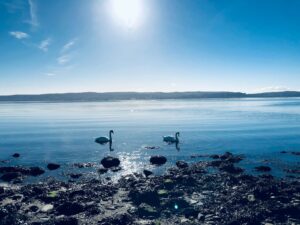Microplastics found in 50% of freshwater insects in Wales, research reveals
Researchers from Cardiff University have revealed that microplastics are widespread in insects from South Wales rivers.
Microplastic fragments, pieces of plastic debris under five millimetres, were found to have been ingested by one in every two insects, and at all the sites sampled.
This first UK study of microplastics in river insects investigated three different kinds of mayfly and caddis larvae and found that all contained plastic material irrespective of their feeding methods.
Fred Windsor, PhD Student at Cardiff University, said: ‘Every year, between eight and twelve million tonnes of plastics are thought to be entering the World’s oceans, but around four million tonnes of it passes along rivers. In some cases, there can be over half a million plastic fragments per square metre of river bed, so that ingestion by insects is very likely.
‘In our study, we sampled insects upstream and downstream from sewage treatment works on the River Taff, River Usk and the River Wye, and found plastics were surprisingly widespread.’
The research showed that whilst plastics were found in higher concentrations where wastewater contributed more to river flow, plastics occurred both upstream and downstream of sewage outfalls – indicating that microplastics were entering rivers from widespread sources.
Professor Steve Ormerod, co-director of Cardiff University’s Water Research Institute added: ‘Urban rivers in the UK have been recovering from decades of gross pollution, but growing information illustrates that plastics are a new risk for river organisms not just in towns and cities, but even in some rural areas.
‘Problems could arise from the physical effects of microplastics, from their direct toxicity or from pollutants that they transport. Plastics in insects mean that animals using them as prey could also be affected. At present, however, our understanding of the risks to wildlife and people is absolutely rudimentary. We need to improve this situation urgently to know how best to manage the problems.’
The research ‘Microplastic ingestion by riverine macroinvertebrates’ is published in Science of the Total Environment












